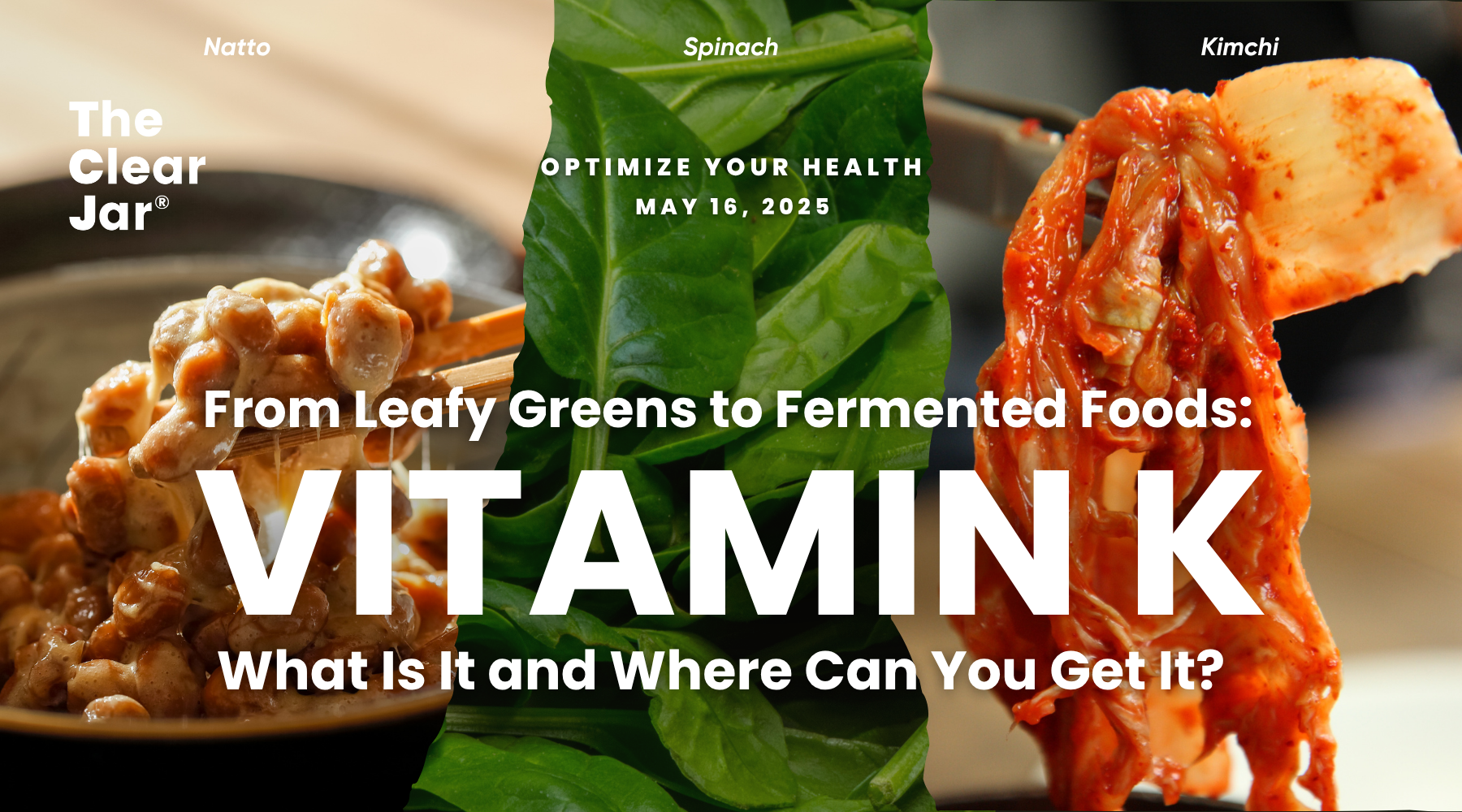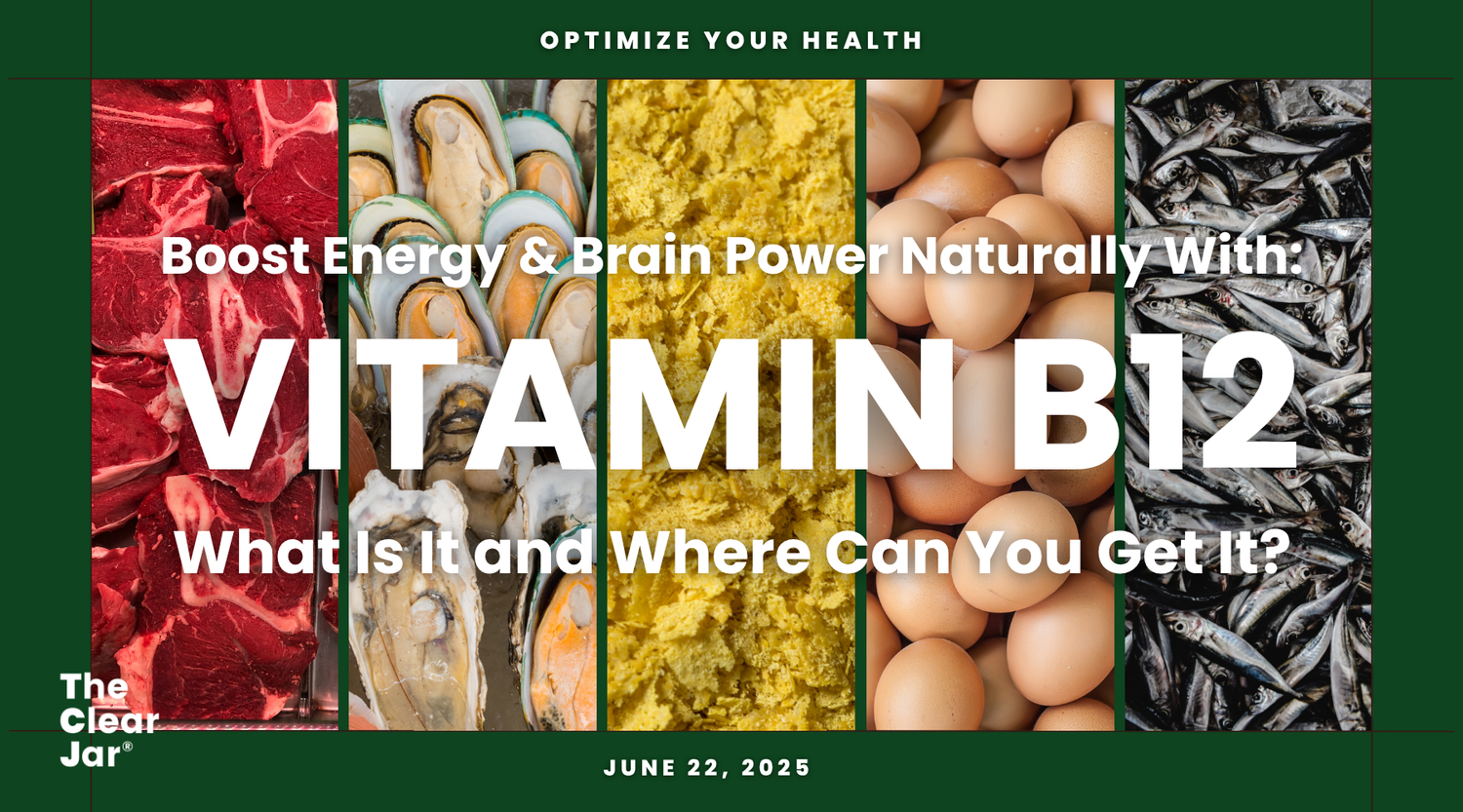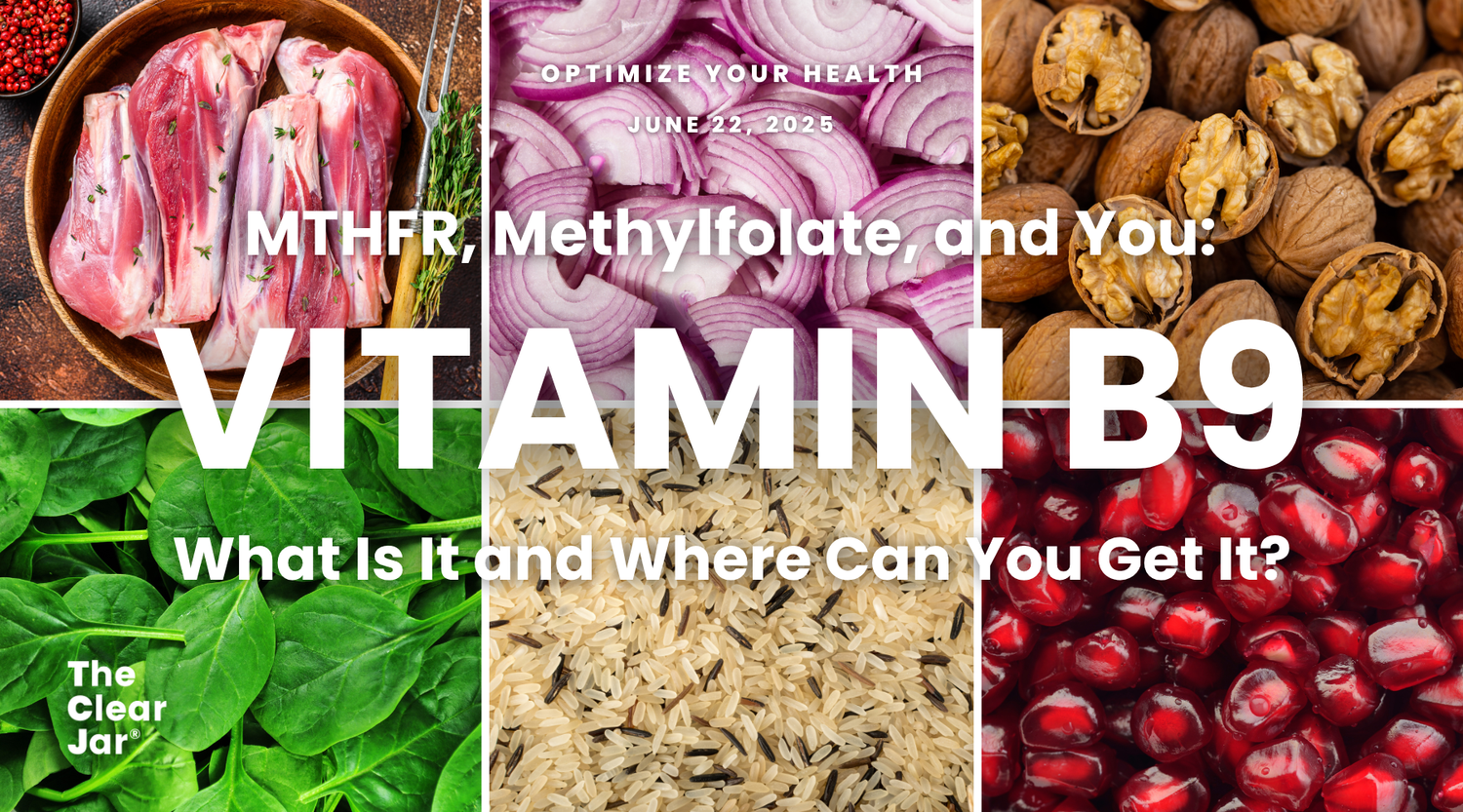Vitamin K is a fat-soluble vitamin important for blood clotting, bone health, and a healthy heart. Here, we explore why vitamin K is crucial for health and where you can get it.
Content Outline
- What is Vitamin K?
- What is the function of vitamin K in the human body?
- Vitamin K forms: Which is the active form?
- Vitamin K-rich foods
- Vitamin K recipe: Chicken thighs with sauteed garlic kale and kimchi
- Vitamin K supplements
- Why buy food-born vitamins?
What is Vitamin K?
Vitamin K is an essential fat-soluble vitamin. Essential means your body can’t make it, so you must get it from your diet, and fat-soluble vitamins are absorbed alongside fat and stored in the fatty tissues and liver[i].
Vitamin K is available in two forms:
- K1 or phylloquinone: the main type that’s found in green, leafy vegetables
- K2 or menaquinones: present in animal foods and fermented foods. Gut bacteria can also produce them.
Alongside vitamins K1 and K2, there are at least three synthetic versions, K3, K4, and K5. So, vitamin K is actually a name for a family of compounds, but K1 and K2 are the main dietary types available to humans.
What is the function of vitamin K in the human body?
Vitamin K is linked to several important body functions, particularly blood clotting.
Vitamin K was first discovered in the 1920s, and its name comes from the German word Koagulation, because of its crucial role in blood clotting or coagulation. It’s responsible for making 13 proteins required to plug wounds and prevent further bleeding[ii].
Vitamin K is also important for:
- Bone health: It activates several proteins that are important for bone formation, increases bone mineral density[iii], and reduces fractures[iv]
- Heart health: Vitamin K regulates calcium homeostasis,[v] with vitamin K deficiency being linked to increased calcium deposits in the arteries and arterial stiffness[vi]
- Cognition: Emerging research suggests that a higher vitamin K intake amongst elderly people is linked to better cognition and fewer behavioural disturbances[vii]
- Immunity: Vitamin K is known for regulating gut bacteria and modulating the interaction between the gut microbiome and the immune system[viii]. It also acts as a co-factor for some plasma proteins, affecting immune and inflammatory responses mediated by T cells[ix].
Vitamin K forms: Which is the active form?
Vitamin K is not just one compound, it is a term that describes natural plant and animal forms of vitamin K – K1 and K2 – and synthetic types, K3 and K4[x].
Vitamin K1 and K2 are the 2 types most often found in the human diet.
Vitamin K1, or phylloquinone is found in plant foods like spinach, kale, and broccoli. It accounts for 75% to 90% of your dietary intake of vitamin K[xi].
Vitamin K2, or menaquinones, are found in fermented foods and animal products and can be produced by gut bacteria. Several subtypes of menaquinones (MK) exist that are named according to the lengths of their side chains. They range from MK4 to MK13.
MK7 is considered the most bioavailable and has a longer half-life[xii]. This type is also associated with a greater efficacy for promoting bone health compared to others like MK4[xiii].
Vitamin K-rich foods
Vitamin K is found in many plant and animal-based sources:
|
Vitamin K1 sources |
Vitamin K2 sources |
|
Kale |
Natto (fermented soybeans) |
|
Spinach |
Egg yolks |
|
Broccoli |
Aged cheeses |
|
Brussels sprouts |
Beef liver |
|
Cabbage |
Chicken |
|
Parsley |
Pork |
|
|
Sauerkraut/Kimchi |
Vitamin K1 and K2 are absorbed differently in the body, which can impact the effect they have on your health. For example, vitamin K1 is poorly absorbed, with some research suggesting that less than 10% is taken up by the body[xiv].
Although less is known about vitamin K2 absorption, because it is often found in foods that naturally contain fat, it’s likely it may be better absorbed[xv] because it is a fat-soluble vitamin. It can also remain in the blood for several days, compared to several hours for K1[xvi].
Do gut bacteria produce vitamin K?
Yes, gut microbes can produce several vitamin K2 subtypes, including:
- MK-6
- MK-7
- MK-8
- MK-10
- MK-11
However, the abundance and concentration of these subtypes in your gut are heavily dependent on the overall composition of your gut microbiome and can vary between individuals[xvii].
It was once thought that gut bacteria contributed up to 50% of our total vitamin K requirement. However, more recent research demonstrates that dietary vitamin K is remodelled into menaquinones by the bacterial community in the gut,[xviii] which inevitably influences the composition of the gut microbiota.
[H2] Vitamin K recipe: Chicken thighs with sauteed garlic kale and kimchi
With so many vitamin K-rich food options available, it’s easy to boost your intake naturally.
This hearty meal combines vitamin K1 and K2, making it a well-balanced and delicious option for supporting bone and heart health. Plus, with a side of kimchi, you’ll be increasing your intake of probiotics to support a healthy gut microbiome.
Ingredients:
- 2 bone-in, skin-on chicken thighs
- 1 tbsp olive oil (plus more for kale)
- 1 garlic clove, minced
- 2 cups kale, chopped
- 1 tsp lemon juice
- Salt and pepper to taste
- 2 tbsp sauerkraut or kimchi (for serving)
Methods:
1. Cook the chicken thighs
- Heat the olive oil in a pan or skillet over a medium to high heat.
- Season the chicken thighs with salt and pepper or any seasoning of your choice, then place them skin side down in the pan.
- Cook until the skin is crispy and golden brown.
- Flip and cook until the chicken is cooked through (internal temperature of 165oF (74oC) and the juices are running clear.
-
Remove from the pan and allow to rest.
2. Sauté the kale
- In the same pan, add a little more oil if needed.
- Sauté the minced garlic for about 30 seconds until fragrant.
- Add the chopped kale and cook for 2 to 4 minutes, stirring until slightly wilted.
- Drizzle with lemon juice, season with salt and pepper, and remove from the heat.
3. Serve
- Plate the chicken thighs alongside the kale.
- Serve with a spoonful of sauerkraut or kimchi for a tangy, fermented boost.
Vitamin K supplements
Some people may require vitamin K supplements, especially if they struggle to get enough in their diet. People who may benefit from vitamin K supplementation include those with:
- Vitamin K deficiency – Although rare in adults, vitamin K deficiency can cause excessive bleeding because your body will not produce enough of the proteins needed to clot blood.
- Malabsorption disorders – Conditions such as celiac disease, ulcerative colitis, cystic fibrosis, and fat malabsorption arising from severe liver disease, biliary obstruction, or pancreatic disfunction can all contribute to vitamin K deficiency.
- A high risk of osteoporosis or arterial calcification – Low levels of vitamin K can increase the risk of osteoporosis and circulatory conditions, so supplementation will ensure optimal levels. However, it is important not to consume excessive amounts of vitamin K.
- Long-term antibiotic use – Broad-spectrum antibiotics can disrupt the composition of the gut microbiome and kill off or deplete the abundance of vitamin K-producing bacteria.
Several types of vitamin K supplements are available, including:
- Vitamin K1 as phylloquinone or phytonadione (a synthetic version of K1)
- Vitamin K2 in the form of MK-4 or MK-7
- Multivitamins also sometimes contain vitamin K and research shows that vitamin K1 containing multivitamins can improve intake in deficient patients[xix]
Which type of vitamin K supplement is best?
Synthetic vitamin K1 and vitamin K2 in the form of MK-7 are well absorbed by the body and reach their peak concentrations 4 hours after consumption. However, MK-7 has a long half-life, which means it remains in circulation for longer, stabilising vitamin K levels for longer. It also activates a higher percentage of osteocalcin, a protein that binds calcium to bones[xx].
Therefore, when choosing a vitamin K supplement or multivitamin, it is preferable to choose one that includes vitamin K1 or MK-7.
Why buy food-born vitamins?
Vitamin K is an essential fat-soluble vitamin that is important for blood clotting, bone health, and heart health. There are two main forms available in the diet, K1 and K2, with K1 mostly being found in leafy green vegetables and K2 in animal products and fermented foods.
Despite vitamin K deficiency being rare in adults, supplementation can help make sure your body gets all the vitamin K it needs to stay healthy.
Supplementing with food-born vitamin K such as those from The Clear Jar provides several advantages, including:
· improved bioavailability, absorption, and synergy
· reduced risk of toxicity
· 100% food-based
· no added fillers
· cost-effective
Check out our shop to explore the range.
Written by: Leanne Edermaniger







